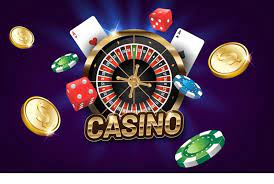Introduction:
CAKEPTOGEL have long been synonymous with glitz, glamour, and the promise of fortune. These entertainment hubs have captured the imaginations of people around the world, offering an enticing blend of excitement, risk, and the prospect of winning big. However, beyond the dazzling lights and vibrant atmosphere lies a complex world with its own set of dynamics, psychology, and societal impact.
The Evolution of Casinos:
Casinos have a rich history dating back centuries. The word “casino” itself originates from Italian, meaning a small villa or summerhouse. Over time, these establishments evolved into hubs for various forms of gambling and entertainment. The introduction of iconic games like roulette, poker, and blackjack marked significant milestones in the development of the modern casino.
Casino Design and Atmosphere:
One of the defining features of a casino is its carefully crafted ambiance. Casinos are designed to be immersive environments, with strategically placed lights, sounds, and colors aimed at creating a sense of excitement and anticipation. The goal is to captivate visitors and keep them engaged, enhancing their overall gaming experience.
The Psychology of Gambling:
Casinos leverage psychological principles to keep patrons playing and coming back for more. The thrill of the unknown, the potential for winning big, and the social aspects of gaming all contribute to the allure. Slot machines, for example, are meticulously designed to deliver a combination of intermittent reinforcement and sensory stimulation, creating a compelling experience for players.
Responsible Gambling:
While the allure of casinos is undeniable, it’s crucial to address the importance of responsible gambling. The excitement and risk associated with casino games can sometimes lead individuals to engage in risky behavior. Casinos actively promote responsible gambling by offering resources, setting limits, and providing support for those who may be at risk of developing gambling-related issues.
Societal Impact:
Casinos play a significant role in the economies of many regions. They create jobs, generate tax revenue, and contribute to local businesses. However, the industry is not without controversy. Critics argue that casinos can lead to social issues, including problem gambling, addiction, and an increase in crime. Balancing the economic benefits with potential social costs is a constant challenge for communities that host these establishments.
The Rise of Online Casinos:
In recent years, the advent of technology has given rise to online casinos, allowing people to experience the thrill of gambling from the comfort of their homes. This shift has expanded the reach of the industry, providing convenience for players while raising new concerns about the potential for increased gambling addiction.
Conclusion:
Casinos remain complex and multifaceted entities, blending entertainment, psychology, and economics. While they continue to be a source of excitement and allure for many, it is essential to approach them with a sense of responsibility. As the industry evolves, finding a balance between economic benefits and addressing potential social issues will be crucial to ensuring that casinos can coexist harmoniously with the communities they serve.





More Stories
Exploring the Fascinating World of Casinos
The Evolution and Impact of Casinos
The World of Casinos: A Comprehensive Overview